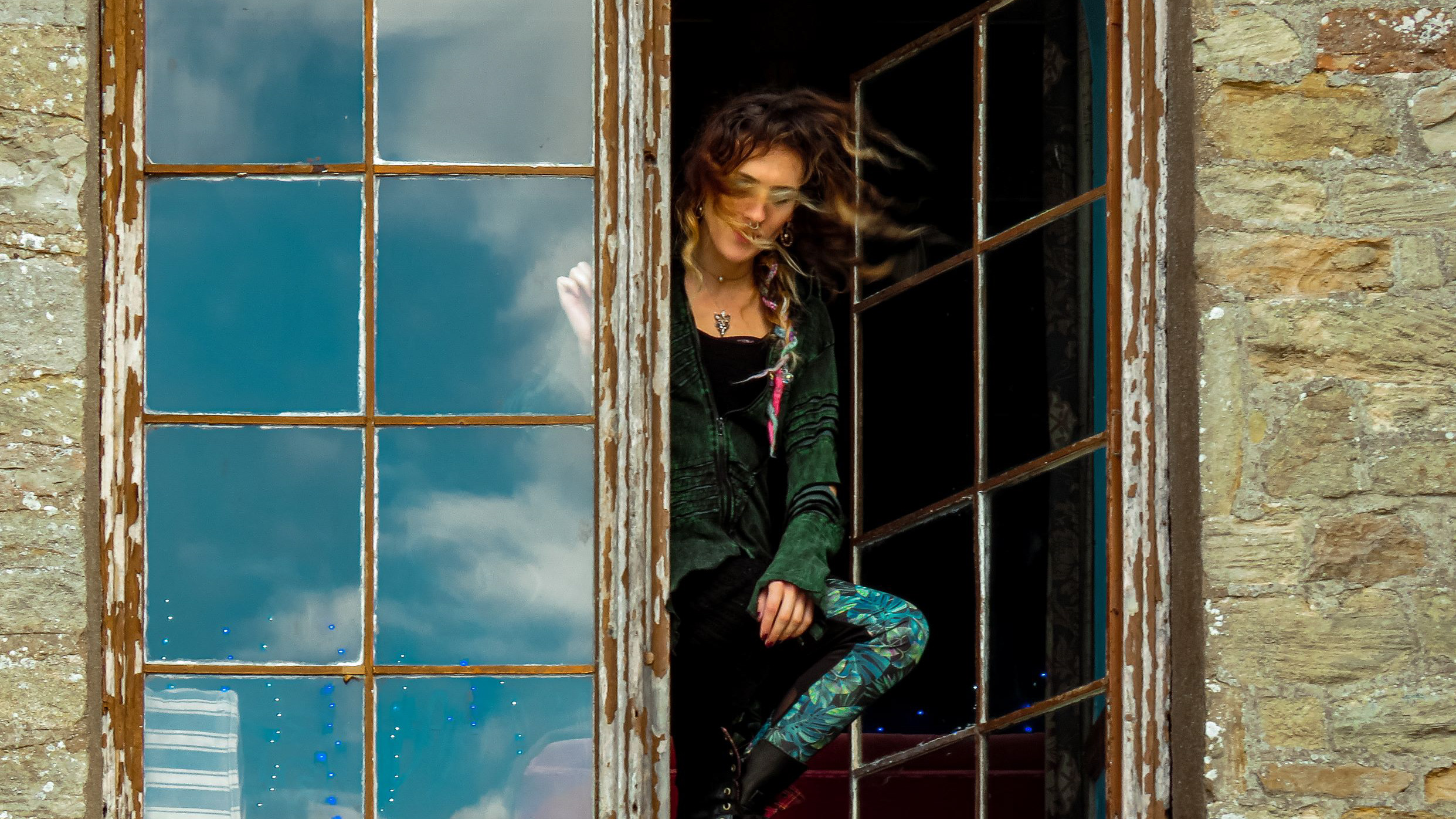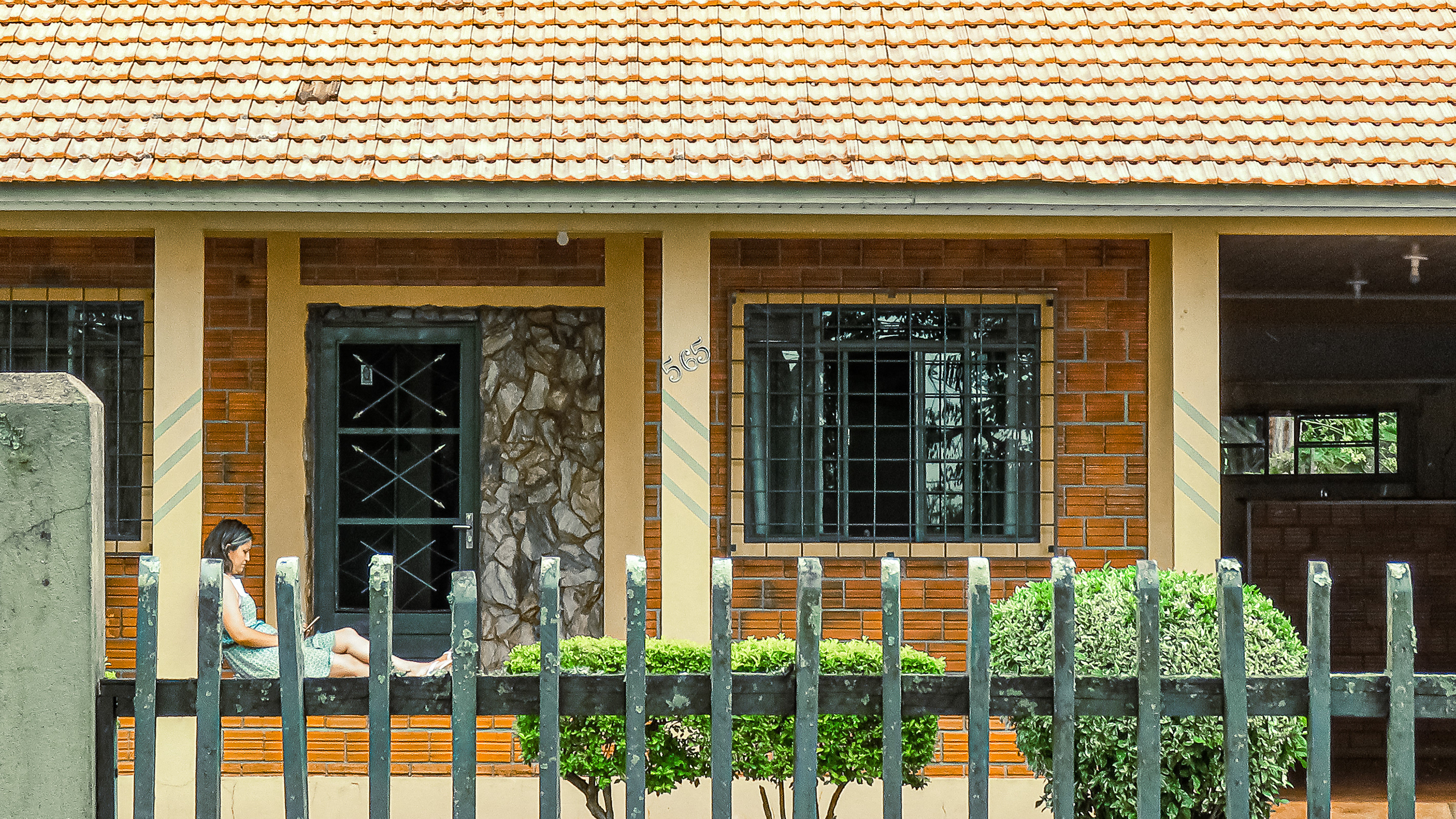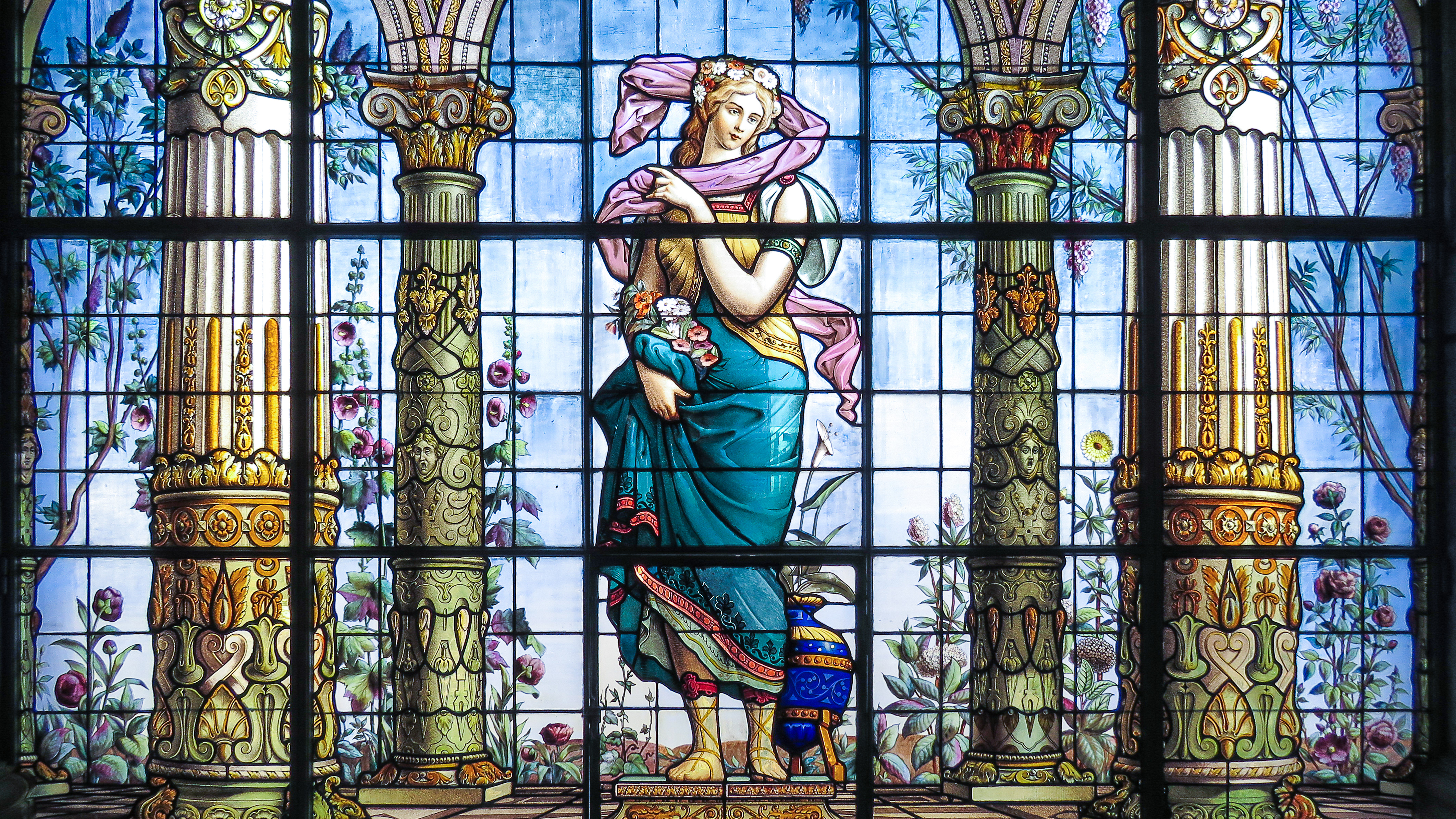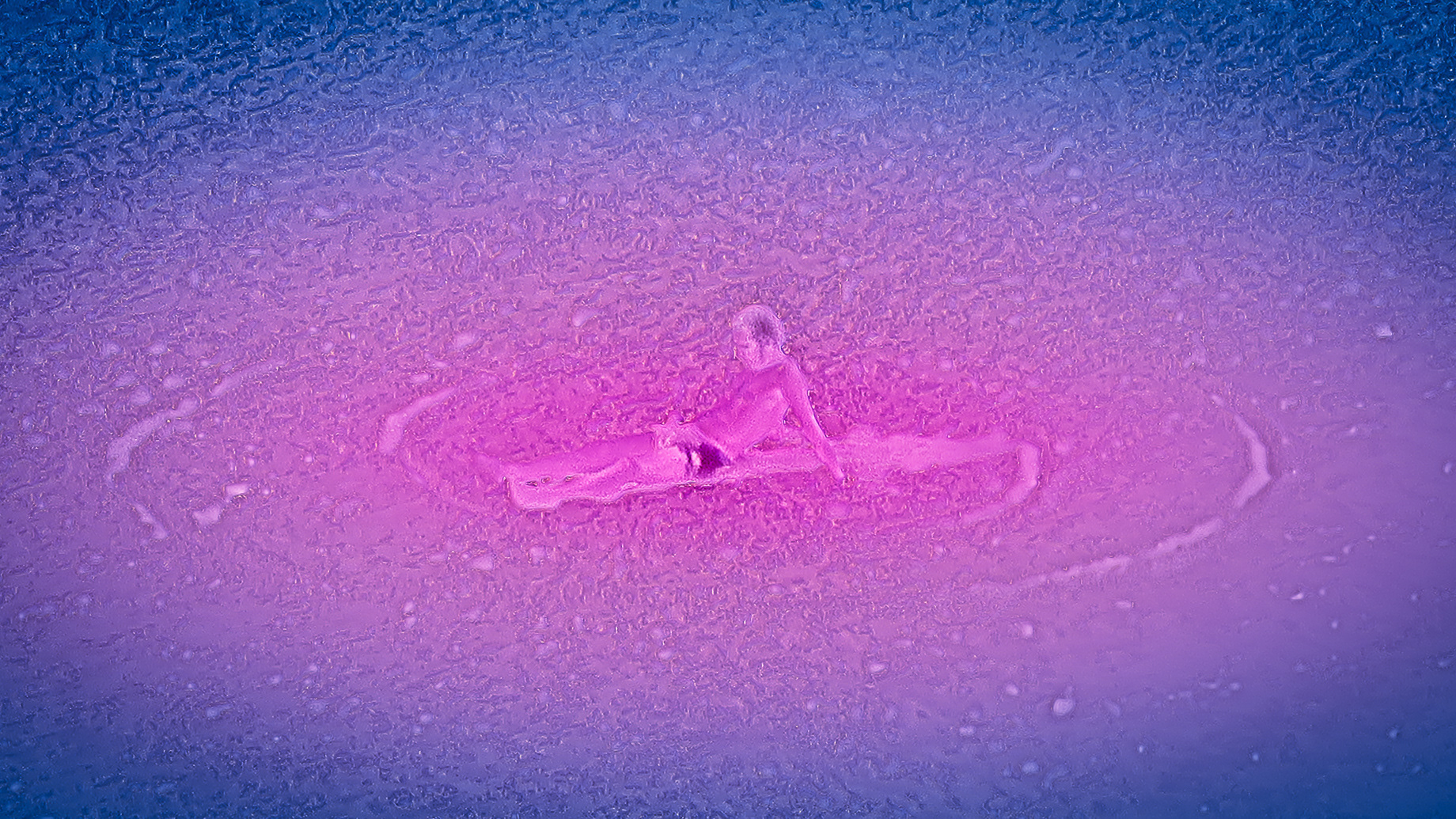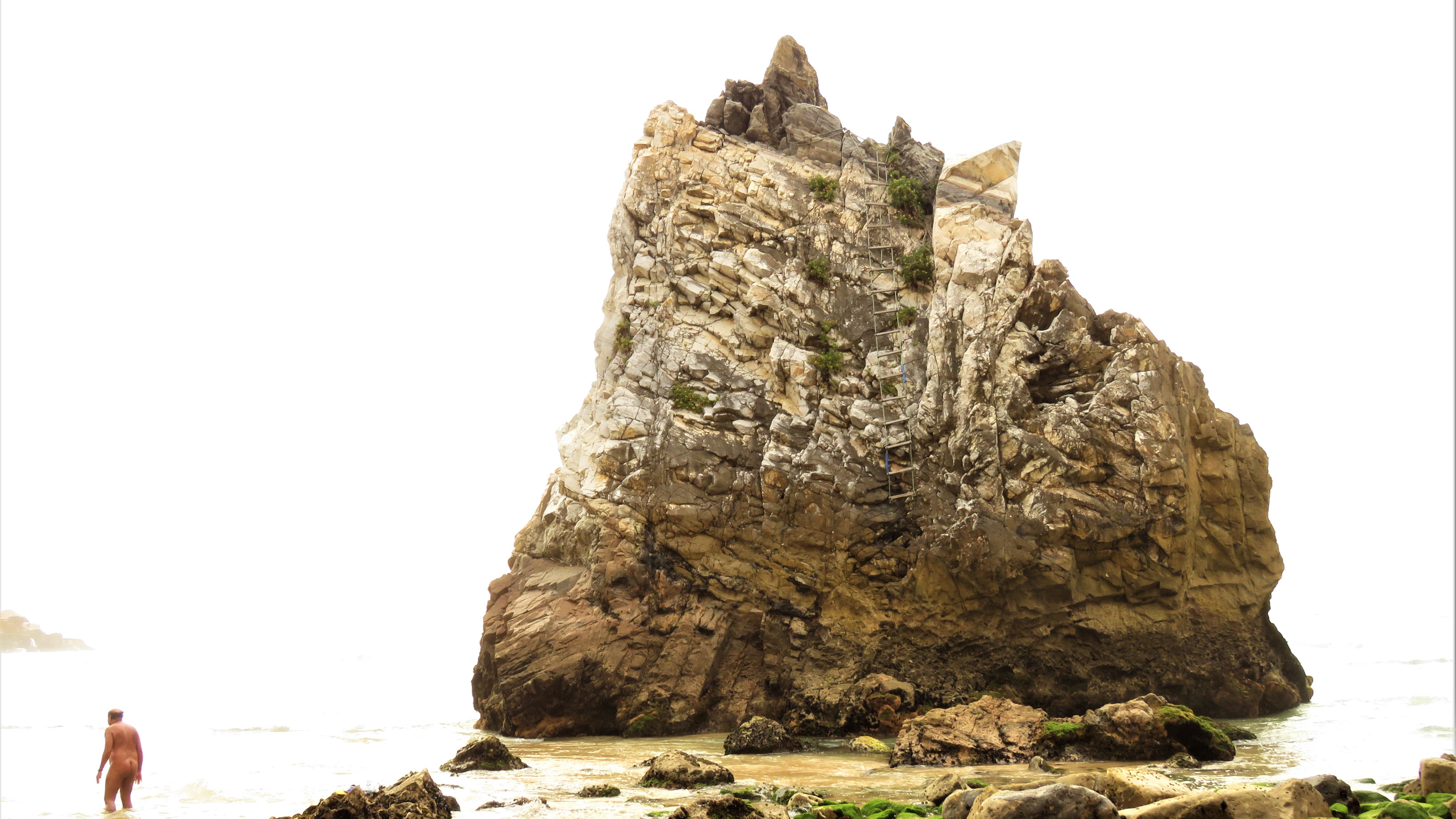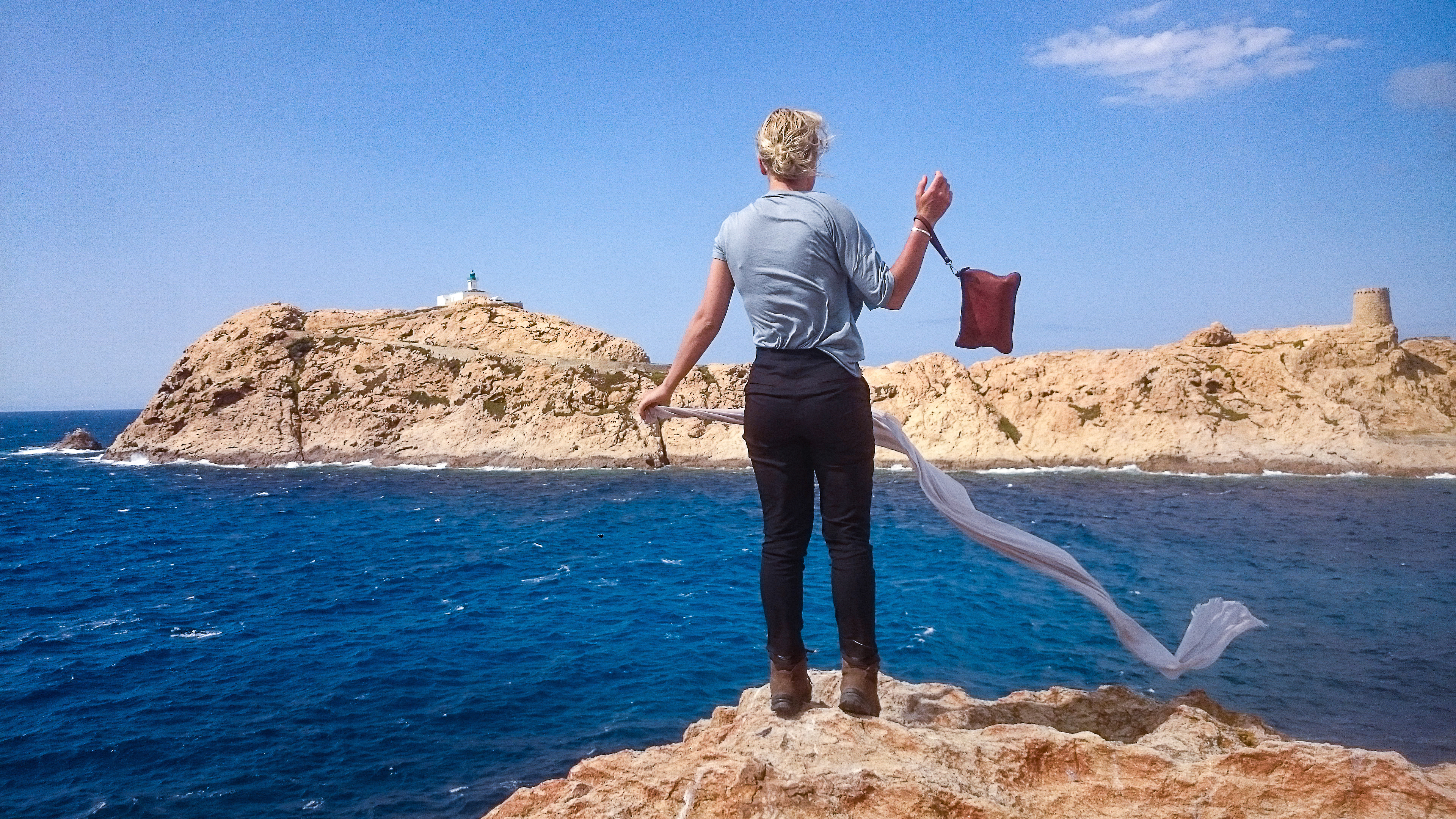I remember being locked in my room, hiding behind a crooked door that couldn't muffle the sounds of angry rock music blaring from my stereo at full volume. Sweet 16, but it felt dark and bitter within those walls. My mother had given up on trying to get me to turn off the music, wondering why her son became so withdrawn and sensitive whenever conflict arose. I resented her and the world at large. The only comfort I found was in Kurt Cobain's screaming, 'I'm not gonna crack!'...
Perhaps this scenario sounds typical of a pimpled youth in the '90s, but the loneliness I felt was undeniably real. Despite my sincere desire for happiness, I often found myself isolated and, at times, my social circle dwindled to just a few people with whom I could truly share my inner turmoil.
Kurt's voice still echoed in the background, singing about friends who existed only in his head, while I wondered about mine and if anyone would notice if I suddenly disappeared from this mundane town. Back then, children weren't taught how to handle ostracism, racial exclusion, or abuse. So, you shut down and resent the world, all the while what you're actually yearning for is to feel loved. Kids do a lot of stupid things to feel loved. Adults even more...
September 2023
"Some force must be looking out for me," I thought as I got on my last-minute ride from Reykjavik to the remote expanses of northern Iceland, where a month-long artist residency awaited me. This region was so secluded that public transport was non-existent, and my only option was a 7-hour carpooling ride. Luckily, I stumbled upon Gudrun's carpooling offer on the very morning of my departure, after I almost lost hope.
A 7-hour car ride with a stranger might seem like a long journey, but as I placed my heavy luggage in her car's trunk, I realized there was little room to complain. I fastened my seatbelt and offered a polite smile to the friendly woman who was sparing me from spending a small fortune on another night in a run-down Reykjavik hotel.
We embarked on our journey, leaving her peaceful suburb and making our way north along Iceland's rugged coastline. Astonishingly, the sun made a rare appearance for the first time since my arrival, prompting me to ask, 'How do you people endure this weather?'
"I love this weather! I wouldn't want to be anywhere else!" Gudrun replied with a radiant smile.
'You don’t ever want to take occasional breaks and escape these gray skies for a taste of Mediterranean warmth or tropical rhythm?' I inquired.
"Why would I?" she responded. "I have everything I need right here. I rarely even leave my house!"
'Who is this happy-go-lucky woman I'm sharing this ride with and is she actually allowed to drive this car?' my jaded and cynical brain alerts me. Yet, the anthropologist in me sensed an opportunity to explore a new perspective on life.
'Please, explain,' I ask her, not yet knowing how complex her response will be. But we have 7 hours right? So let’s get on with it.
"People often ask if I'd like to travel and see the world, but I love my home. I love Iceland. I wouldn't trade it for anywhere else in the world. I live next door to my daughter and grandchildren, and today, I'm heading north to visit my son and his child for a week. I've grown accustomed to the weather; trust me, this is nothing. I used to live in Northern Iceland, where the climate was even harsher. Once I got stuck at home for 3 months because we were buried under snow..."
For most of her life, Gudrun lived in the area of Akureyri, Iceland's second-largest city on the northern coast. There, the climate was more severe, and the region often bore the brunt of intense blizzards.
"I remember those days," she recalled, her voice carrying a touch of nostalgia. "We'd shovel snow from our front door and melt it in the bathtub just to be able to dig a tunnel and leave the house. During one particularly harsh winter, our home was buried under 5 meters of snow, and we couldn't leave for months. We received food deliveries through the attic window to avoid starving."
Gudrun had moved to a small village near Akureyri at the age of 7, having originally hailed from Keflavik, a small town in the southwest of Iceland. She occupied a middle position among no less than 11 siblings.
"Is it common to have such large families in Iceland?" I inspected.
"Not really," she replied, "My family was a bit unusual."
'In what way?' I asked, unprepared for what I was about to hear.
"Well my father was an alcoholic, my mother was mentally ill and we also lived with my grandfather who used to sexually abuse us," she shot out of nowhere, causing my world to momentarily slow down as I processed the gravity of her words.
"My childhood was traumatic. I was the fourth child, with a significant age gap between me and my older sibling and my younger siblings. My mother seemed to resent me more than the others and subjected me to constant bullying. I suspect she was prepared to leave my father when she became pregnant with me, which forced her to stay in that toxic relationship. It felt like she never forgave me for that, and her resentment persisted until she passed away a few years ago."
"My childhood was traumatic. I was the fourth child, with a significant age gap between me and my older sibling and my younger siblings. My mother seemed to resent me more than the others and subjected me to constant bullying. I suspect she was prepared to leave my father when she became pregnant with me, which forced her to stay in that toxic relationship. It felt like she never forgave me for that, and her resentment persisted until she passed away a few years ago."
I struggled to absorb the weight of Gudrun's revelation. 'How can you not be profoundly scarred by such a childhood and still choose to stay in this place?' I project, as usual, from my own life choices.
"It was a dreadful place to grow up in, yet since I remember myself, I always dreamt of having a family of my own, one that I could love and care for as I should have been cared for. Since my parents were dysfunctional, I essentially raised my siblings until I became pregnant at 16 and left home with my boyfriend. We didn't venture far; we merely moved to the house next door, still teenagers ourselves. I needed to finish school, and I still felt responsible for my younger siblings."
Gudrun, together with her husband, who entered her life when she was just 11, raised three children. Over the next couple of hours, she shared harrowing tales of her childhood and aspects of her adult life, all while maintaining a light and cheerful tone like she was telling me about her last trip to Wonderland. She periodically checked on me to see if it was not too much, apologizing for burdening me with her stories. However, I encouraged her to share more, hoping to uncover the secret of how she coped with her traumatic past.
"I was a quiet child compared to my siblings, always striving to be well-behaved and kind," she continued. "I noticed the adults around me often spoke to each other disrespectfully, but I refused to act the same. I believed the world could be a better place if people treated each other with kindness. So, I made a conscious choice to treat everyone the way I wanted to be treated."
I pondered my own desire to treat people with unconditional love and respect, realizing that when wronged or subjected to injustice, my first impulse was often to seek revenge.
I would feel consumed by that sense of rage and, no matter how well-versed I became in conflict mediation and non-violent communication, it was often stronger than me. I seldom expressed this rage toward those who wronged me, choosing instead to internalize it until it subsided with time. But do these feelings truly fade, or merely transform?
"There are two forces that fuel one's existence: love and fear," Gudrun explained. "If I engage in conflict and create chaos, I find myself energized, just as I do when I express love. Unfortunately, if I love everyone, some might label me as peculiar. If I'm angry, people might fear me. Yet, I prefer to opt for love over anger."
I would feel consumed by that sense of rage and, no matter how well-versed I became in conflict mediation and non-violent communication, it was often stronger than me. I seldom expressed this rage toward those who wronged me, choosing instead to internalize it until it subsided with time. But do these feelings truly fade, or merely transform?
"There are two forces that fuel one's existence: love and fear," Gudrun explained. "If I engage in conflict and create chaos, I find myself energized, just as I do when I express love. Unfortunately, if I love everyone, some might label me as peculiar. If I'm angry, people might fear me. Yet, I prefer to opt for love over anger."
She recounted a poignant moment involving her mother shortly before her passing when she came to her asking for help with a medical issue. "As I was helping her, she asked me why I bothered to help her after years of abuse and resentment. I told her that, regardless of everything, I held only love for her. She was completely puzzled, still entrapped by the negativity that had marked her life and her mental state, and hooted, 'I still hate you!'
I looked at her and replied, 'That's alright. That's your choice. I will always love you.'"
I looked at her and replied, 'That's alright. That's your choice. I will always love you.'"
Like a care bear fighting the forces of negativity, Gudrun had learned not to succumb to life's adversity and to give unconditionally, holding onto the belief that karma would someday reciprocate. Buddhism, Christianity, and various spiritual practices have always renowned the virtues of treating others with love, compassion, and empathy as a means to forge a better world. But what is the source of this love we try to shower the world with? Is it a genuine altruistic desire to love others or is it the wounded child inside us who wishes to be loved? Gudrun had certainly suffered a lack of love and security during her formative years, and she consciously chose a path in the opposite direction. Yet, psychologists often argue that such behavior can be considered pleasing and could be a subconscious attempt by the inner child to finally receive the love it had longed for. Eager to please others, one might unintentionally disregard their own psychological and physical needs, potentially leading to a range of mental and even physical disorders in adulthood. So giving is great but it has to be for the right reasons. Don’t forget that inner child.
—
As we continued along Iceland's picturesque west coast, the country uncovered more of its majestic beauty. Dark cliffs covered in patches of vibrant green moss enveloped us, sculpted by white waterfalls that flowed gracefully into the northern ocean. The spectacle was nothing short of breathtaking and clarified why Bjork called this an "emotional landscape." I had lost count of the rainbows I'd spotted, and it wouldn't have surprised me if, around the next bend, a shimmering pink unicorn had nonchalantly strolled across the road.
Gudrun, as if attuned to my thoughts, pointed toward a low rocky terrace along our route and casually mentioned, "This is where Trolls live."
She is dead serious.
I once had a Troll doll my father had brought me from one of his travels to Scandinavia. It had spiky black hair, a prominent nose, and a friendly yet a bit monstrous face. Is this what I need to look for?
Tales of mythical creatures like Trolls have always been woven into Icelandic culture, and Gudrun is not the only one who claims they exist. Some individuals had even constructed tiny colorful homes for them among the rocks, offering shelter from the island's harsh elements.
She is dead serious.
I once had a Troll doll my father had brought me from one of his travels to Scandinavia. It had spiky black hair, a prominent nose, and a friendly yet a bit monstrous face. Is this what I need to look for?
Tales of mythical creatures like Trolls have always been woven into Icelandic culture, and Gudrun is not the only one who claims they exist. Some individuals had even constructed tiny colorful homes for them among the rocks, offering shelter from the island's harsh elements.
‘So what is the story with Trolls?’ I ask with curiosity and no judgment whatsoever. Or at least I try.
“Trolls, like faeries and midgets, are local creatures who live in a different dimension to us. They are usually shorter than the average human, a bit bulky, and half transparent.
They have been living here way before us and have been described in Icelandic folklore since humans started settling on the island. Not everyone can see them but I have seen them many times.”
They have been living here way before us and have been described in Icelandic folklore since humans started settling on the island. Not everyone can see them but I have seen them many times.”
I had to admit; she made a convincing case. I wondered if, in this land of enchantment, my pragmatic and nihilistic mindset would be challenged enough to allow me to glimpse some of the magic Gudrun spoke of.
"Do you believe in God?" I asked her.
"I don't believe in the God preached by the church," she replied. "I do believe in a higher power, a caring force we can reach out to. It doesn't control our actions, but we can seek its guidance and advice. I don't claim to fully understand it; I know nothing. But this has been my experience. Once, when I was in boarding school, I wished for an avalanche because I didn't want to return home for the weekend. Three days later, an avalanche did occur, and we were all stranded at school for the weekend. Only for one weekend unfortunately but at least I got something… I've always felt that someone was looking out for me, and I consider myself a very lucky person."
‘How can you call yourself lucky after everything you have been through?’
“You know what I consider my greatest luck? I was 4 years old when I had the worst sexual abuse I ever experienced. When it happened I felt like I was out of my body and suddenly I was surrounded by so much light. Many angels. So I didn’t experience any pain. I was just in a peaceful state. From that experience, I learned that no matter what is going on, no matter how life challenges me, I can always enter a state of peace.”
Gudrun shared with me a lot of stories about the abuse she suffered for so many years, and on a few occasions throughout our ride, she brought me close to tears. Yet, she maintained her rosy outlook on life, and I couldn't help but feel that perhaps she exists on a different plane of reality, much like the Trolls she spoke of, and that she was just sent to me from my guiding angles who thought I needed more than just a ride.
There was definitely something out of this world about her. It was almost as if she could read my mind at times. She told me about visions she'd experienced in the past, visions of family members facing dire situations. In those moments, she could transport herself to be with them, offering support, only to later discover that her visions had mirrored their actual experiences. She seemed like a mythical cherub, parting the clouds to reveal the sky and helping me consider that there might be someone watching beyond that vast blue canvas.
My postmodern skepticism usually rejects any beliefs beyond the visible, yet I am full of respect for her and admit that eventually, I don’t really know what is beyond the realm of earth, so I should stay humble. Either way, today, I had undoubtedly encountered a guardian angel.
My postmodern skepticism usually rejects any beliefs beyond the visible, yet I am full of respect for her and admit that eventually, I don’t really know what is beyond the realm of earth, so I should stay humble. Either way, today, I had undoubtedly encountered a guardian angel.
—
I embraced Gudrun with a huge hug as she dropped me off at the doorstep of my residency. The house is nestled on the outskirts of town, overlooking a serene fjord surrounded by imposing, steep mountains. I searched for Trolls and fairies among the shadowy nooks between the rocks, but they remained elusive.
As I stepped inside my home for the next month and dropped my luggage the silence suddenly enveloped me, though the breathtaking view from the windows offered a symphony of its own.
As I stepped inside my home for the next month and dropped my luggage the silence suddenly enveloped me, though the breathtaking view from the windows offered a symphony of its own.
The clock read 9 pm, and I set about preparing a quick dinner. The room bathed in natural light, as the lingering sun had yet to dip below the horizon.
It was just me and Bjork, singing in the background in her melodious voice providing the backdrop to my thoughts:
It was just me and Bjork, singing in the background in her melodious voice providing the backdrop to my thoughts:
“You'll be given love
You'll be taken care of
You'll be given love
You have to trust it
Maybe not from the sources
You have poured yours
Maybe not from the directions
You are staring at
Twist your head around
It's all around you
All is full of love
All around you”
"I can feel it. Thank you."


